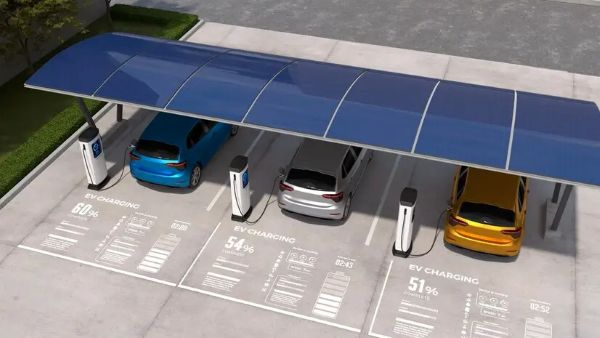As a professional EV charger manufacturer in China, Topper Company provides reliable electric vehicle charging station equipment and comprehensive solutions to meet all your charging needs.
The Megawatt Charging System (MCS) represents a revolutionary step forward in the electrification of the transportation sector, specifically for heavy-duty vehicles such as trucks and buses. With the growing demand for sustainable and efficient freight transport, MCS addresses the critical challenge of long charging times that have historically hindered the widespread adoption of electric trucks.
What is the Megawatt Charging System (MCS)?
MCS is an ultra-fast charging solution specifically designed for heavy-duty commercial vehicles, offering power levels exceeding 1 MW. This system can recharge electric trucks and buses to 80% in just minutes, which is a game-changer for long-haul logistics. Unlike traditional chargers that take several hours to charge an electric truck, MCS reduces the downtime drastically, making it a feasible option for fleet operators who rely on tight schedules.
Key Features of MCS:
- Ultra-Fast Charging: MCS can charge heavy-duty EVs to 80% in just minutes, significantly faster than current systems.
- High Power Output: With a maximum capacity of up to 3.75 MW, MCS is optimized for electric trucks that need fast and efficient recharging.
- Standardized Design: MCS adheres to the SAE J3271 standards, ensuring compatibility across various vehicle manufacturers.
- Interoperability: The system is designed to work with a range of vehicle models and charging networks, providing flexibility for users.
Why MCS is a Game-Changer for Heavy-Duty Transport:
The key challenge in electric truck adoption has been the charging infrastructure, particularly the long wait times for recharging. Conventional fast chargers, like the 350 kW CCS, are insufficient for the demands of large commercial vehicles, as they would take hours to charge an electric truck. In contrast, MCS delivers the high-powered charging needed to reduce downtime, increase fleet efficiency, and offer longer driving ranges. By minimizing the time trucks spend at charging stations, MCS also lowers the total cost of ownership (TCO) for electric trucks, making them more viable for logistics operations.
MCS vs. Passenger EV Charging:
MCS is specifically designed for heavy-duty vehicles, not passenger electric cars, due to the vast differences in battery sizes and charging needs. Passenger EVs typically charge at 50 kW to 350 kW, which is sufficient for their smaller batteries. However, the battery capacity of commercial trucks requires a much higher power output, making MCS the appropriate solution for freight vehicles.
The Technical Standards Behind MCS:
MCS follows the SAE J3271 standard, ensuring that it is safe, reliable, and interoperable across various electric truck models. Key technical requirements include:
- Power Range & Compatibility: MCS supports up to 3.75 MW, with voltage capabilities up to 1,250V.
- Connector & Communication Protocols: A standardized plug design and advanced cooling systems are necessary to handle extreme power loads.
- Grid Integration & Energy Management: MCS includes smart load-balancing systems to prevent grid overloads and has the potential for future Vehicle-to-Grid (V2G) functionality.
Virta’s 1.2 MW Pilot Project:
Virta, in partnership with Hedin Supercharge, is launching a 1.2 MW pilot project in Sweden in 2025. This project will offer invaluable real-world data on the charging efficiency, grid impact, and vehicle performance at ultra-fast charging stations. If successful, this initiative could lead to a larger-scale deployment of MCS stations across Europe’s freight corridors, accelerating the adoption of electric trucks.
Challenges and Future Outlook:
While MCS represents a major breakthrough, there are still challenges to overcome:
- Infrastructure Costs: The high cost of building MW-level chargers and upgrading local grids to handle such power demands will require significant investment and collaboration between public and private sectors.
- Grid Capacity & Energy Demand: Local grids will need to be reinforced to handle these high power levels without disruption. The integration of renewable energy sources will be crucial for sustainable power.
- Vehicle Availability: Although some electric trucks already support MCS, more manufacturers are expected to release compatible models, expanding the market for this technology.
Conclusion: The Road Ahead for Megawatt Charging
The Megawatt Charging System holds the potential to transform the logistics and transportation industries by making long-haul electric trucking more viable. With projects like Virta’s 1.2 MW pilot in Sweden, we are on the cusp of a new era of high-power, ultra-fast charging. By 2025-2030, we could see a widespread rollout of MCS stations along major freight routes, supporting the transition to cleaner, more sustainable transportation.
The transition to electric trucks is no longer a distant dream but an imminent reality, and MCS will play a crucial role in making that transition both practical and efficient.Know more about Google SEO Directory





Comments